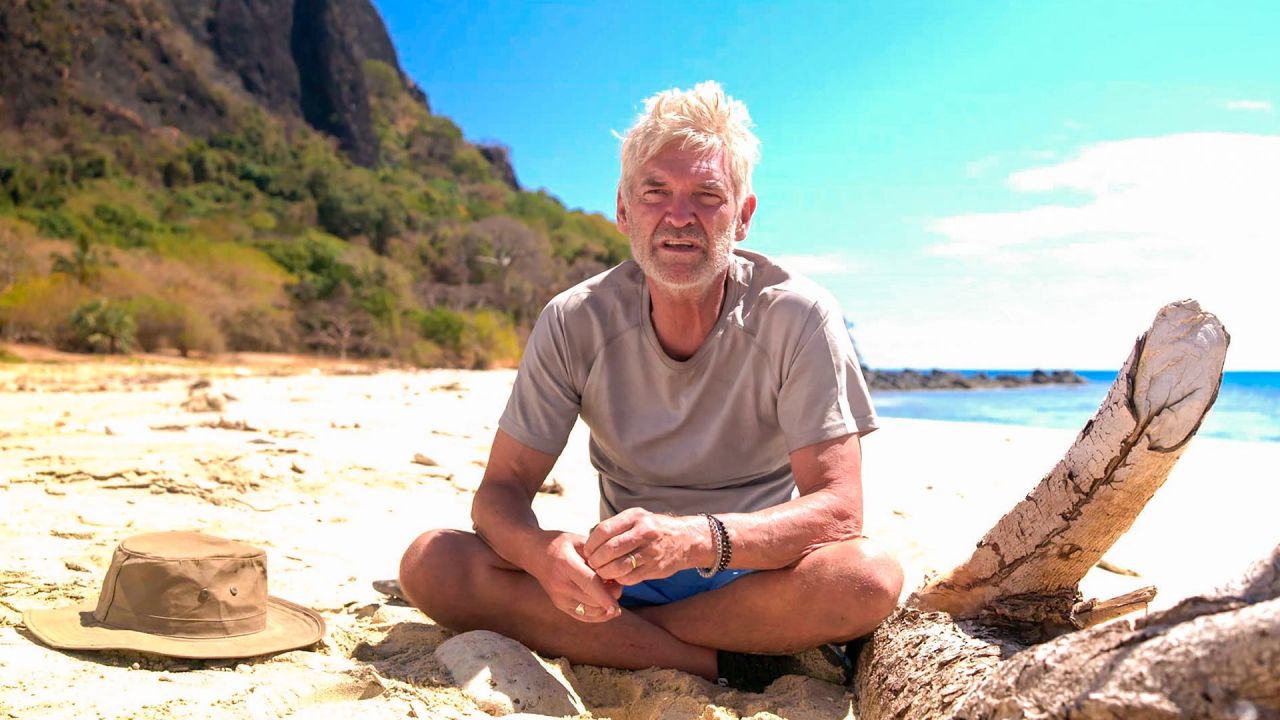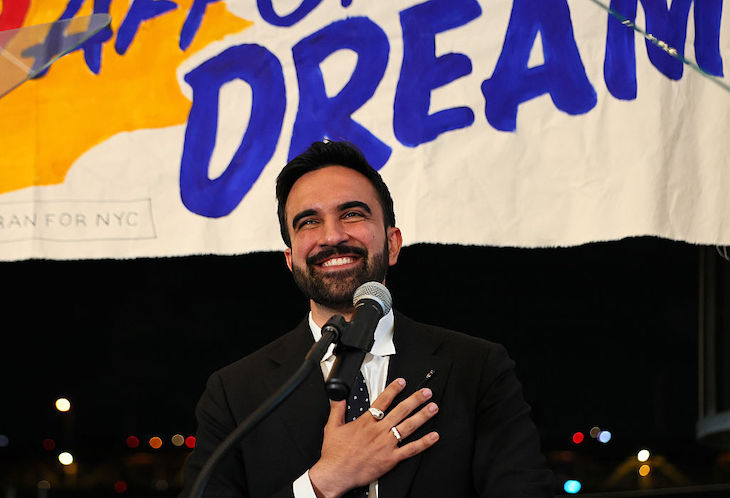I’ve always found the word ‘presenting’ – as in TV presenting – somewhat comical. It’s such a giveaway. In theory, the presenter is presenting the show they host; in reality, they’re presenting themselves for public approval. To add to the fun, ‘presenting’ is also a word used to describe monkeys being rude with their nether regions.
Though they are often referred to as ‘the Talent’, a presenter can’t really be said to be gifted in the way other people are on television; a good actor, a fine singer, a nifty dancer. They don’t do – they are. So though they may appear to be the jammiest showbiz tribe – paid a fortune to sit there reading a cue-card – their position is also the most precarious. They are vertiginously dependent on the kindness – or at least the approval – of strangers in a way that performers with actual talent are not. Being seen to be ‘decent’ is a big part of this. Great talent bestows a sexual hall-pass; no one cares that Picasso put it about a lot, or that Dickens perved after his wife’s sister. But a presenter needs to behave themselves.
Many presenters can’t fully face the precariousness of their position, and so start to tell themselves stories about how uniquely talented they are; this in turn can make them arrogant, and prone to poor judgements. When their bad habits catch up with them, those work colleagues they have treated shabbily are often keen to add to the chorus of disapproval – and the poor down-a-peg monkey is told to put it away and sent packing.
This is what happened to Phillip Schofield, who was caught with his hand in the cookie jar – or rather, down an employee’s trousers – last year, bringing his 30 years of daytime TV dominion to an end. After a long period of fibbing about his ‘sexuality’, and the subsequent relationship with a youngster, Schofield’s recollections came to vary so much that had he stayed at This Morning, viewers would have been looking out of the window to make sure it wasn’t in fact last night.
Homophobia wasn’t an issue, though he tried to play that card. What did come across badly, to the majority female audience, was the way he appeared to play the women in his life for mugs. There was his actual wife, Stephanie, his gruesomely-named ‘sofa-wife’ Holly Willoughby and his grown-up daughters, wheeled out to prove how loveable he was in the manner of an old-fashioned Tory philanderer. The word ‘supportive’ came up over and over again; then he slunk off to seek yet more support from yet another woman – his poor old mum, still reeling from her other son being recently convicted for sexually assaulting a teenage boy. He seems to have used women as emotional support pets all his life; weeping on their shoulders all the way to the bank and then being called ‘brave’ for doing so, even though being a gay man in showbusiness is about as brave as being a cook in a kitchen. Schofield was trying to have his cake and eat it; respectable family man and brave gay hero. It was highly unattractive, and gave the impression of a wretchedly desiccated husk of a man attempting to hang onto fame above all else – Norma Desmond with a comb-over. As I wrote here last year:
‘Schofield has literally spent his entire adult life becoming a ‘personality’. When a person writes a great book or paints a great picture, we can perhaps see the point in all the fretting and sorrow and side-lining of private life so common in the case of creatives. But if one’s only ambition is to be perceived as ‘chatty’ and ‘likeable’ what drives a person? Was it all for the money? A heart-shaped hole? Whatever, the pursuit of X has been the all-consuming passion of Schofield’s life, ever since, after years of pestering the BBC, he won the position of Broadcasting House tea-boy at 17. Some cruel souls might muse that he had already found his niche (‘One lump or two? Little bicky?’) and that further ambition could have been a chronic case of delusions of adequacy.’
After three decades of modelling your persona to please a paying public, when you have no audience, do you cease to exist? Do you still go grotesquely through the motions? Does Schofield get up in the morning, look in the mirror, give a big wide smile and say ‘Good morning! Today we’ll be talking about existential terror’? It seems highly likely, as he will now be appearing in a three-part Channel 5 reality show, Cast Away, which finds him living alone on an island off Madagascar for ten days, with no camera crew, recording his stay himself; a cross between self-abuse and self-promotion. Of course, a drama queen like Schofield can’t just admit to getting a jolly holiday to a tropical island, not just for free but no doubt being paid handsomely for it. It can’t be a trip – it has to be a journey, as is the way with all cry-bully bores. As he announced recently on Instagram (comically, as if to a breathlessly waiting world, when in fact he’d been largely forgotten the moment the Huw Edwards scandal blew up): ‘Now you know how I spent my summer! Alone for ten days, no food, no water, no crew. My story of survival – both on a desert island and off it.’
It’s unfortunate that Schofield is following in the sandy footprints of Ruby Wax and Joanna Lumley, the first of whom who has genuine problems with mental health and who has worked diligently to remove the stigma from the illness, and the second who is the mother of all Stoics (also, both women have actual talent). The contrast couldn’t be crueller. Theirs was a genuine search for some further insight into their already successful lives which might only be founded in isolation. Compare that to what very much looks like a washed-up has-been’s extended audition tape for a role which he has no chance of landing.
Amusingly, even though Lumley and Wax are actors, Schofield’s the only castaway who appears to be acting. His blather comes across as about as sincere as Keir Starmer kissing his wife:
‘I’ve recently had a lot of time to think about my life, what went right and what went wrong, but I’ve always had the safe arms of friends and family wrapped around me. This time it’s just me, no phone, no comforts, no crew and only lip balm as a luxury. I’m looking forward to exploring the island, trying to tie knots to secure my shelter and foraging and fending for myself in the wild with no help. Maybe I’ll be Robinson Crusoe or maybe I’ll just be Tom Hanks’ Wilson and quietly drift off into the wild blue yonder.’
Even when allegedly laying himself bare for public inspection, mortification and redemption, the empty vessel can’t stop posturing; anything is better than having to look at the void within himself, it seems.
But it’s hard to see this as a human tragedy, as the subject is scarcely recognisable as human. Like Wilson itself, he is a simulacra of what a suffering soul looks like. As Gertrude Stein said of her hometown: ‘There’s no there there.’
This is no tragedy; it’s the two-bit story of the self-inflicted downfall of a mediocre little man who wanted to be loved ‘for himself’ and to be paid a packet for the privilege. A life wasted trying to get the attention and approval of strangers; not to draw their eyes to some personal talent or some political crusade, but to a void where the soul should be. To quote the only memorable thing this monumentally unmemorable man has ever said: this awful smorgasbord of self-exposure may not be illegal, but it is very unwise indeed.









Comments